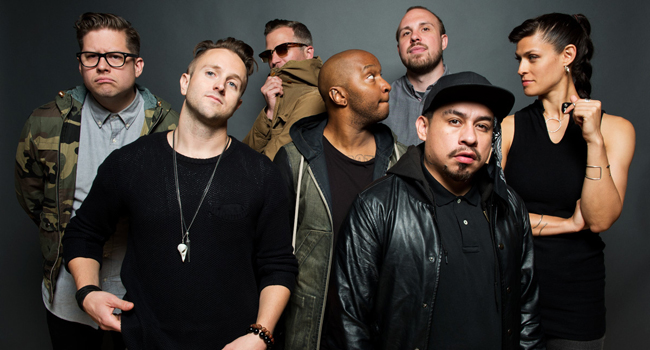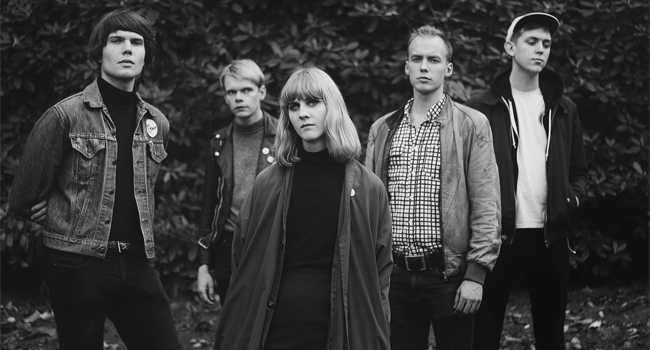 Most musicians know how to write one style of music. Many try to expand their sound, often resulting in odd amalgams of former genres passing for current ones (think about any rock band of the modern era trying to make an “opera”). Precious few are able to divorce themselves almost completely from the paradigm in which they began.
Most musicians know how to write one style of music. Many try to expand their sound, often resulting in odd amalgams of former genres passing for current ones (think about any rock band of the modern era trying to make an “opera”). Precious few are able to divorce themselves almost completely from the paradigm in which they began.
Sphynx, one of Austin, Texas’ newest generation of funk-poppers, qualifies among those precious few. A three-man outfit, with all players pulling double duty on instruments, the band carry itself and speaks on its genre with well-thought out reference points and clear artistic intent, leading to the easy assumption that the crew had been working with bouncy synthetic beats for a good half-decade or more.
“Two and half years,” guitarist Corey Dennis pipes up. And it’s true; formed from the ashes of a markedly different style of music, Sphynx as an entity has had a relatively infantile lifespan. Yet in that scant period the trio have put together two focused, not at all naive funk-pop EPs, are prepping the band’s first, “cinematically” driven full-length and have cultured such an aesthetic that it’s hard to imagine any of the band members feeling comfortable in other styles of music.
Yet they were. Dennis and guitarist Aaron Miller, talking about their history, are quick to point out the various gestation periods they’ve had as a songwriting duo. “When we were about 12, Corey started taking guitar lessons, and I got all of his chord sheets from class for free,” says Miller about the first time he and Dennis played together.
What followed, to an attuned observer, spoke to the members of Sphynx being able to adapt to the whatever surroundings they choose to inhabit.
Whether it was pop-punk (“we could never find anybody to play with us in those bands,” says Dennis) or psychedelic (“what Jimi Hendrix would’ve sounded like when he was three or four,” says Miller), the inseparable duo searched for the right combination of band members and genre to fit their style.
Drummer Todd Harris joined the band at the end of its psychedelic phase, just in time to join the most notable pre-Sphynx project, the locally notable folk-pop group The El Guapos. Toward the end of the Guapos run, Miller notes that “some of the unreleased songs had begun to incorporate synths in it, so we were sort of making that transition.” That transition, after a year of disbanding and foraging in other projects, would be the decidedly funky Sphynx.
“We are all big fans of bands like Cut Copy, Chromeo, Yeasayer and those type of bands that are blending the retro with the modern,” says Miller.
Those influences carry a heavy weight on the band’s newest EP, Pre-Wild. A tight three song sampler, the first song “Terathon” is straight out of the Yeasayer songbook – infectious guitar lines, plucky, rhythmic production and an effortless, airy vocal mashing themselves together into a grandiose four-minute pop number.
All of the studio material Sphynx has put out indicate a grander stage presence than three guys, one of whom (Dennis) admits to having learned synths specifically for Sphynx, could possibly hope to achieve live.Yet, from every indication, the band has cultivated an interesting countermeasure to accomplish the same grandiose song craft that it bring across on Sphynx’s records.
“I think it’s a bad show if I don’t feel like dying afterwards,” Dennis casually mentions. From all indications, the band’s live shows are hell raisers.
With costumes, whatever manner of pyrotechnics they can manage on a humble budget and, as always, a trusty iPhone on bass, Sphynx has won over a previously skeptical Austin crowd with infectious shows.
“We always hated going to some of our favorite band’s shows and seeing the guys up their just standing” says Harris, and the rest of the band agrees. Dennis and Miller note that even back in their pop-punk days they were energetic and rollicking on stage and have managed to carry that over to every act they’ve played in.
“We have to really capture people in our live show, since we’re working from such a small base of released songs,” says Miller.
After the initial shock of changing genres so drastically (“some of our friends were not so hot on us for a while,” says Harris), Sphnyx has carved a niche for itself in what Miller believes is a rapidly growing Austin synth-pop scene .
“We have to struggle a lot less these days to find a bill that we fit on, and a lot of venues now can handle the type of show that we bring each night.” They mention expanding the region of bands that they play with, often teaming with Dallas, San Antonio and Louisiana synth-pop acts to put a great bill together.
And while what Miller notes about the band’s heretofore minuscule catalog rings true to a point, the band are hunkered down in Dennis’ studio working on a proper full-length. Harris mentions working with far more soundscapes, trying to tie the album together in a cinematic way, not just as a collection of songs. The band would do well to do so, as the band’s modern day influences (MGMT especially) are a cautionary tale on the perils of creating what amounted to an over-sized EP.
But each of the band members drop Drive as a primary influence on the new work (Dennis semi-jokingly notes that he would’ve loved to have been contacted for the soundtrack), as well as dreaming about stealing pyrotechnics from Phil Collins, so it seems as if Sphynx is going to be just fine plumbing the fertile artistic ground of synth-pop.




